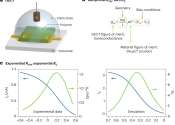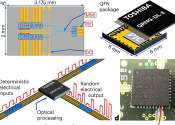Your body has internet—and now it can't be hacked
Someone could hack into your pacemaker or insulin pump and potentially kill you, just by intercepting and analyzing wireless signals. This hasn't happened in real life yet, but researchers have been demonstrating for at least ...
Mar 12, 2019
0
458









